SportNXT 2023 Key Takeaways
30 Mar 2023
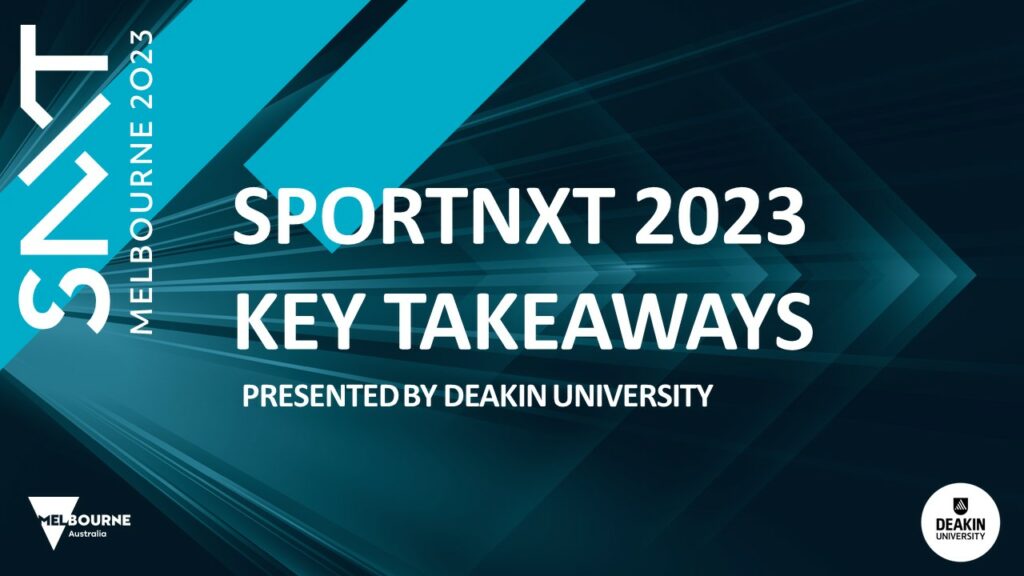
Co-authored by:
Dr Jonathan Robertson (Co-Director, Master of Business – Sport Management, Deakin Business School)
Associate Professor Adam Karg (Director, Sport Innovation Research Group, Swinburne University of Technology)
*********************************************************************************************************************************************
In only two years, SportNXT has become one of the most prestigious sport conferences in the world. The 2023 conference brought more than 850 delegates, representing 400 organisations from 22 countries to the world-class CENTREPIECE @ Melbourne Park to hear from 77 global thought leaders in sport and business as they shared their insights on the future of the global sport industry.
Here, Dr Jonathan Robertson and Associate Professor Adam Karg provide four key ideas and extensions from the week, and four key learnings for managers:
*********************************************************************************************************************************************
Sportainment. The competitive paradigm for sport.
Content remains king. In the modern setting, fans attend and watch games not only to see their favorite teams win, but to be entertained. Sport organisations have long recognised they are competing with other forms of entertainment providers for consumer attention (e.g., social media, streaming and technology companies) and we see the merger between sport and entertainment continuing to drive a more customer-centric approach to decision making that caters to fans’ desires and expectations. Sport leaders unanimously recognise the need to reach fans where they are. Considering how to attract and retain Gen Z eyeballs in an increasingly competitive live broadcast market, David Hill, (Founder, Hilly Inc) articulated the ways in which live sport broadcast is rapidly adopting similar screen graphics to video games to improve storytelling and embed new sponsorship activations within live broadcasts. Sports leagues and organisations that embrace their role as entertainment providers are likely to be more able to grow and expand their fan base.
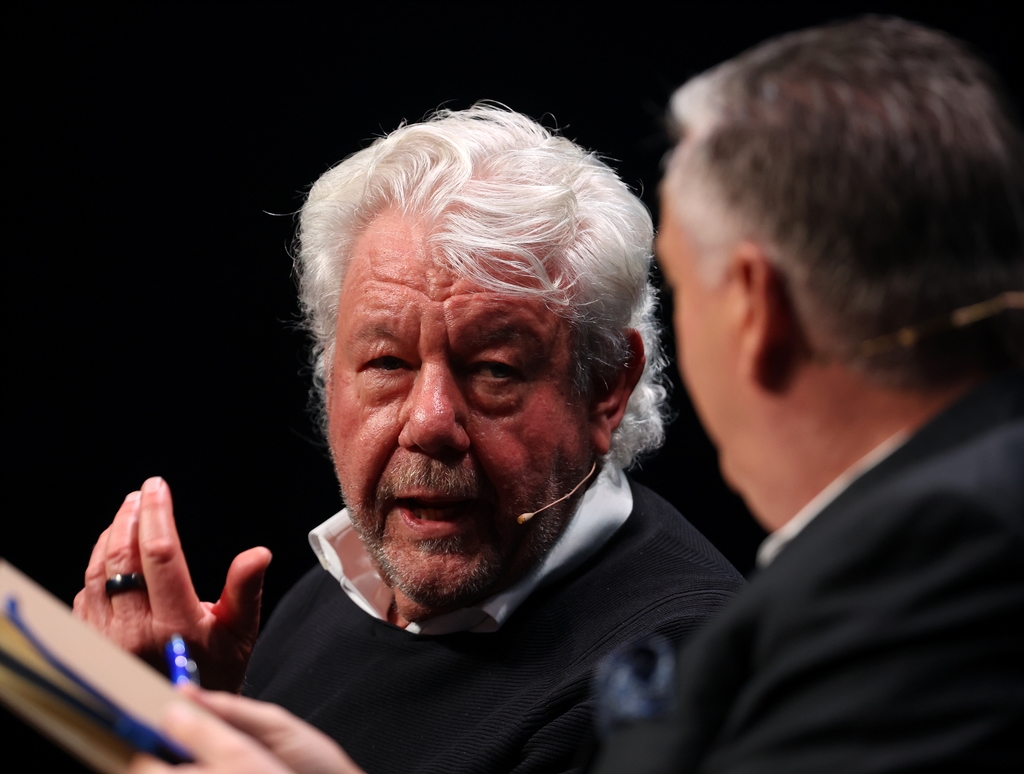
Key takeaway one. A warning for managers: failure to recognise that sport competes against TikTok, League of Legends, or Netflix, can lead to stagnation and decline. Managers looking to grow sport products must consider their consumers actual behaviours and decision making, and both harness data led perspectives and leverage increasing opportunities for customisation to surprise, delight, and engage fans where they are.
*********************************************************************************************************************************************
Purpose. The key to communicating sports value proposition in civil society.
Sports role in society, and society’s role in sport are increasingly interdependent. More than ever, sports organisations and athletes have unique opportunities to drive positive change and promote inclusivity and diversity. As Lisa MacCallum (Former Nike VP and Founder of Inspired Companies) described, purpose is becoming a competitive advantage for those sport organisations who authentically embed values within their businesses. The promotion of, and positive action towards gender equity and diversity can lead to positive public perception and social approval, and can foster platforms to increase participation, improve performance, and drive greater fan engagement. However, this should not be the only reasons for defining a purpose. Purpose-led companies tend to have higher employee engagement, customer loyalty, and financial performance. More specifically, a focus on inclusion and diversity in sport organisations brings a wider range of perspectives, and can provide more creative and effective solutions to challenges facing the industry. Managers understand sport can be a powerful tool for driving social change and building connections. What remains is a need for concerted, genuine and sustained efforts by organisations to be inclusive in their strategies, representation and decision-making, as well as their actions.
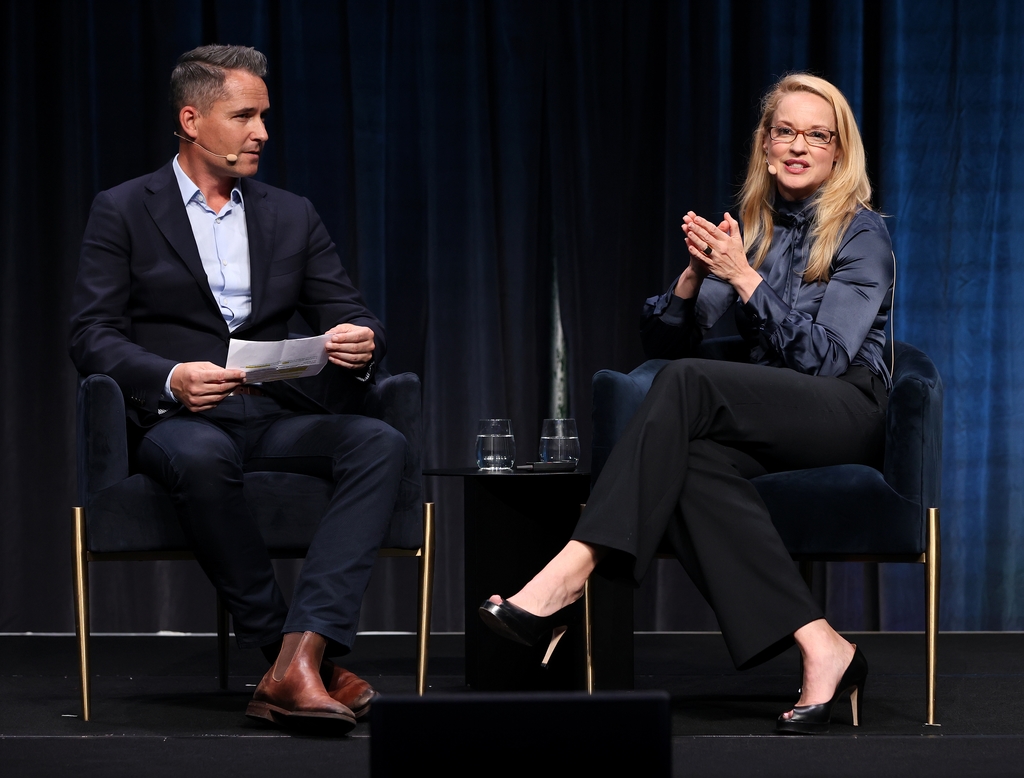
Key takeaway two. Sport remains at the bleeding edge of a number of societal debates that far surpass the boundaries of the sport industry itself. Purpose led sport organisations require substantial investment in change management to embed and socialize values throughout sport organisations, and not just appear as a surface-level marketing tactic. By having longer term strategies, embracing new forms of measurement, and linking purpose and values to corporate strategy, sports organisations and their partners can inspire action and drive value in a way that benefits organisations, employees and the wider community.
*********************************************************************************************************************************************
Technological leadership… The challenge and opportunity for the Golden Decade of Australian Sport.
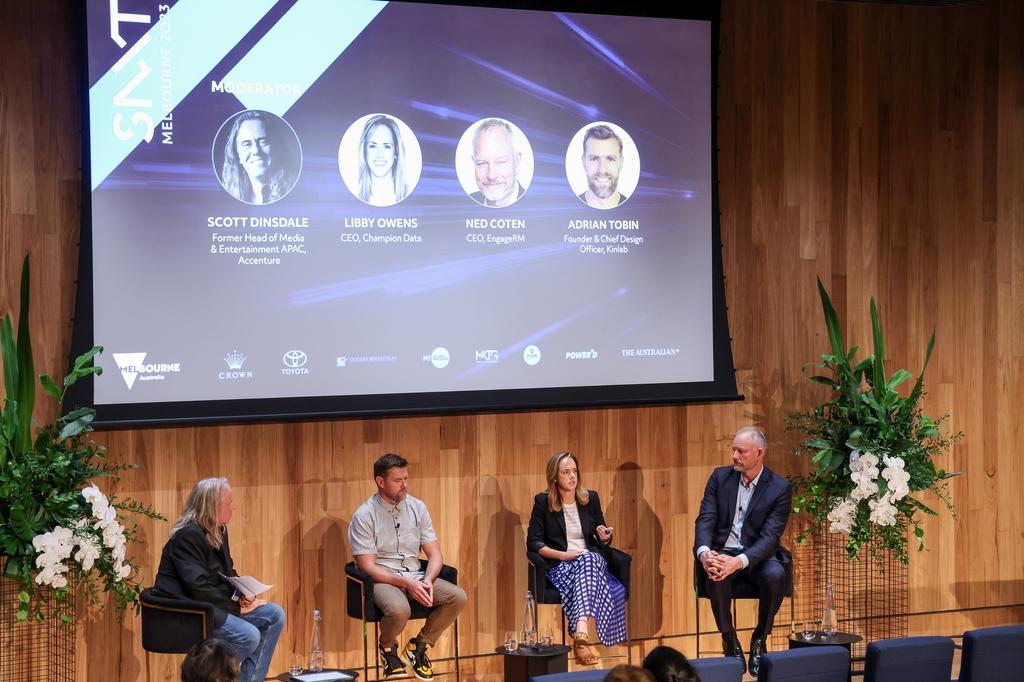
In the decade following Juan Antonio Samaranch announcing Sydney as the host of the 2000 Olympic Games, Australia was able to develop one of the most sophisticated sport systems in the world. Brisbane 2032 presents such an opportunity for this generation of Australian sport. Where the competitive advantage in the 1990’s was earned via the establishment of high performance systems, physical sporting infrastructure, and wholesale professionalisation of Australia’s sport systems and processes, the competitive advantage of the next decade will depend on the ability of sport leaders to identify innovative technological solutions, communicate value propositions to key stakeholders, and productively implement these solutions within sport organisations. In the Partnering with Tech session at SPORTNXT Libby Owens (CEO, Champion Data), Ned Coten (CEO, EngageRM) and Adrian Tobin (Founder & Chief Design Officer, Kinlab) discussed that the competitive advantage here is not necessarily in the technology itself, but rather in how effectively the incorporation of these technologies can be productively implemented into social, economic and performance outcomes for organisations.
Key takeaway three. A key focus for managers to ensure the industry leverages the opportunity of the next decade needs to be on developing technological knowledge and leadership capacity within their organisations, fostering appropriate innovation and risk appetites, and effectively partnering with technology companies to achieve wide ranging outcomes. Most codes and sporting organisations are short on the skills required to evaluate and implement new technologies, making partnerships and system collaboration critical components for success. Consequently, whilst it is one thing to establish and appreciate a need for technology, it is another to be able to do something productive about it.
*********************************************************************************************************************************************
AI is changing how sport managers work and make decisions.
Artificial intelligence has landed. Now what? If nothing else, Chat GPT has provided a use case to the future of AI that has caught the attention of Gen X executives. In SPORTNXTs Data: Unlimited opportunities, shifting boundaries session Ian Narev (CEO, Seek), Pip Marlow (CEO, Salesforce), and Will Lopes (CEO, Catapult) discussed how AI could benefit sport by helping content creators produce audience specific content, hyper-customise targeted marketing messaging to diverse fan segments, and analyze vast sums of data instantaneously to identify trends and insights. The integration of AI into daily work functions and customer relationship management databases will continue to rapidly change the way we work. At the same time, AI presents a raft of ethical and security risks; among them data quality (generative AI is only as good as the data it is trained on), managing bias, and transparent/well communicated data management policies (including data security, storage and destruction).
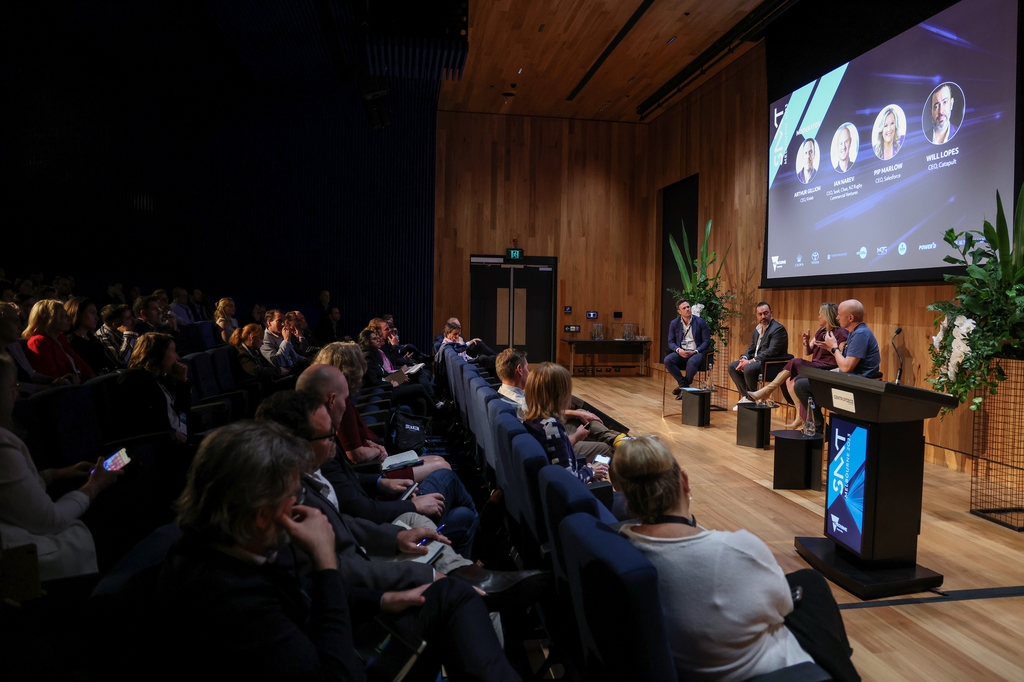
Key takeaway four. Seasons passing without gaining a functional understanding and value creating use for paradigm shifting technologies such as AI will see managers and organisations fall behind. AI’s such as ChatGPT (Open AI), Einstein (Salesforce), and Azure (Microsoft) are paradigm shifting technologies for corporate decision makers, capable of synthesising and simulating countless scenarios to more accurately predict the outcomes of key strategic decisions. Whilst there are still limitations, understanding when, where, and how different AI’s can improve strategic decision making processes and add value to organisations represents new dimensions of competitive advantage for executives.
*********************************************************************************************************************************************
Sport is changing faster than at any point in history with rates of technological and social change arguably higher than the industrial revolution. At the same time, the next decade presents unprecedented opportunities for leaders to leverage new technologies and capitalise on new forms of value. We suggest taking these key takeaways to your next senior leadership meeting. Are you prepared for what’s coming NXT?
Deakin University is the Official Education Partner of SportNXT
Back to all Media